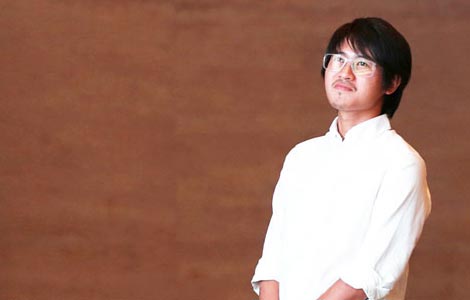Poet nurse recounts life with mentally ill patients
By Huang Zhiling in Chengdu ( China Daily ) Updated: 2014-07-30 09:11:09 |
|
Ours Is a Hospital for Mentally Ill Patients By: An Xuerong Publisher: Guangxi Normal University Press Published year: 2013 Pages: 256 Price: 32 yuan ($5.17) [Photo/China Daily] |
 |
Soon after the Wenchuan earthquake in May 2008, An Xuerong and some of her colleagues went to a quake-hit town in Dujiangyan, Sichuan province, to bring some 80 mentally ill patients to their hospital-Chengdu No 4 Hospital, one of the largest hospitals for people suffering from mental illnesses in Southwest China.
The local hospital where the patients were lodged was damaged in the magnitude-8.0 earthquake, which killed nearly 70,000 and left 18,000 missing.
"The patients cooperated and went to Chengdu with us calmly. In a major calamity, even mental patients wanted to survive. Only a few patients refused to leave their hospital," says An as she lights a cigarette in a teahouse near her hospital.
That is one of the many stories the 50-year-old nurse wrote in her new book, Ours Is a Hospital for Mentally Ill Patients, published by the Guangxi Normal University Press.
All the stories are based on her 28-year experience as a nurse at the hospital, which houses some 800 mentally ill patients.
After graduating from the Third Military Medical University as a nursing major in neighboring Chongqing municipality in 1983, the native of Nanchong in Sichuan started her nursing career at a military hospital in Chongqing. Four years later, she was demobilized and went to work at Chengdu No 4 Hospital.
"A lover of literature, she had written many poems and was known to poets in Chengdu when she started working in the hospital," says He Xiaozhu, a poet in the city.
Using her keen observation as a poet, An wrote many stories in a distinctly humane way.
Patients in her hospital are allowed to leave their wards to exercise in the open air for two hours in the morning and another two hours in the afternoon. Some patients are very happy because they can touch the hands of patients of the opposite sex and even exchange kisses, she says.
"Patients can appear normal after they receive treatment in the hospital. One young man and woman got married after they were discharged from the hospital," An says.
Her hospital once had a high suicide rate among patients because they felt upset after taking some medicine. "They felt as if they had caught a cold. They wobbled and slobber flowed out of their mouths. Their stomachs felt sick," says An, adding that it is much better now because today's medicine has fewer side effects.
She writes that once when she went to the toilet late on a night shift, she was shocked to find a patient was attempting to hang herself from the door frame. She yelled for help and tried to lift the patient's body upward to mitigate the pressure on her neck.
|
|
|
|
|
|
|
|






















 Raymond Zhou:
Raymond Zhou: Pauline D Loh:
Pauline D Loh: Hot Pot
Hot Pot Eco China
Eco China China Dream
China Dream China Face
China Face






